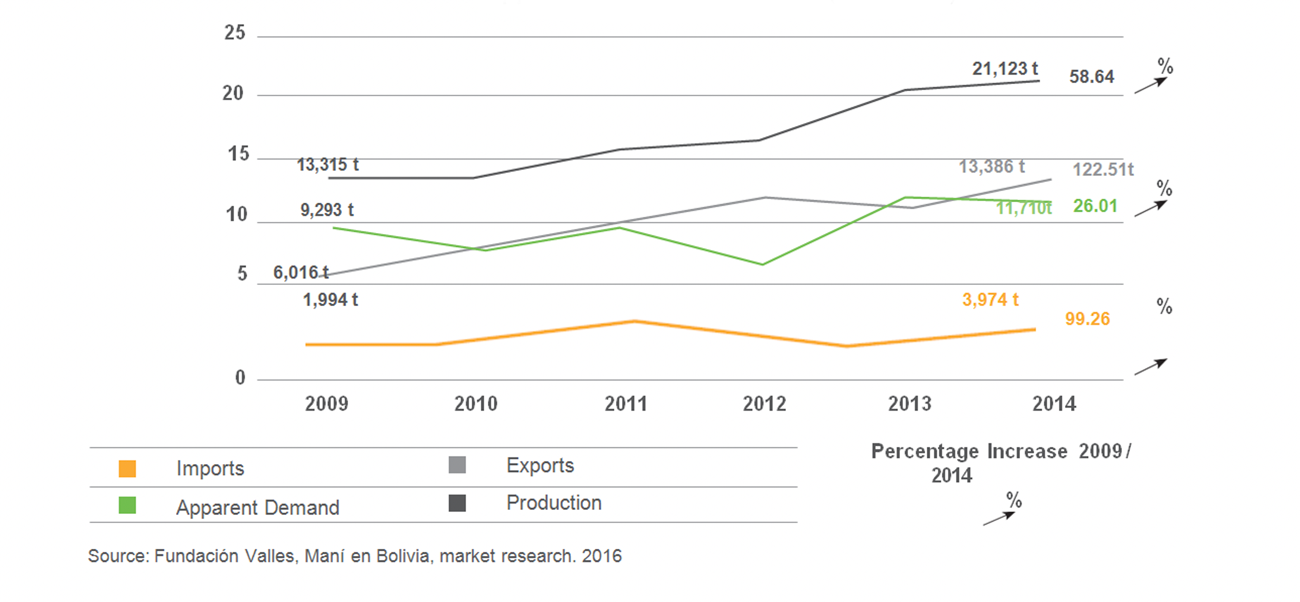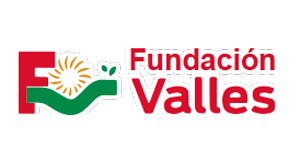From Poor Crop to Star Dish: the enhancement of Peanuts and Oregano in Bolivia
Since 2004, the Valles Foundation has promoted sustainable production of peanuts and oregano, two traditional crops that can contribute to reducing poverty and improving the food security of thousands of Bolivians in rural areas.
Context of the story
Traditionally, the cultivation of peanuts, an emblematic species in Bolivian gastronomy, was the task of indigenous small farmers.
Low productivity and contamination of grains with aflatoxins limited the availability of peanuts, a source of protein, vitamins and minerals.
At the same time, Bolivia suffers from significant nutritional deficiencies, since poverty affects 36.4% of the population, especially in rural and peri-urban areas.
In this context, a plan emerged to standardize the cultivation, quality control and production of peanuts and oregano as a strategy to combat poverty and malnutrition.
With Peanuts and Oregano a Community Can Create Wealth
The implemented initiative
In 2004, the Valles Foundation started a participatory research project with 2,000 families, focusing on peanuts and oregano for self-consumption, local markets and export.
Oregano was chosen for its rusticity, adaptation to poor soils and diverse altitudes, and easy handling, all of which facilitates family participation in the production process.
The project implemented best agricultural and post-harvest practices, technologies for industrial transformation, and market access strategies.
A Participatory Methodology with a Focus on Innovation and Business Strategy
The technological solution
During 18 years, the Valles Foundation contributed to the development of various production chains.
For both the conventional and organic chains in peanut cultivation, the project improved production, harvesting, post-harvest and storage processes, implementing quality protocols to guarantee food safety.
To support the adoption of technologies, families participated in the creation of training materials and procedures manuals.
Small farmers received market information to ensure transparent transactions and fair prices.
Producers were empowered to participate in agribusiness rounds and gain access to new markets.
Meanwhile, the team launched the cultivation of oregano in one of the poorest areas of the country as an alternative for small farmers with unsuitable land.
The project introduced production innovation, price information and participation in business rounds in the oregano chain too in order to create new jobs and achieve higher income for the population.
“Few know how difficult it was to start the business; at first, the peanut harvest was not good and the profits were few, but it was worth it."
Participating countries
Type of project
Results
Peanut consumption increased by 18.2% in 2014.
250 producers exported 54 t of peanuts with organic certification per year, increasing family income by 30%.
In five years, the area cultivated with peanuts grew from 0.26 to 0.38 ha / family.
Three groups of women have created a successful business selling roasted peanut seed, putting 12 tons of processed peanuts on the local market.
The levels of a?atoxin in peanuts decreased from 30% in 2010 to 1% in 2016.
Currently, 2,805 farmers produce, consume and export oregano. An average of 450 t per year is shipped, increasing family income by 84%.
67 markets have been monitored and 3,495 market reports and 6,280 radio bulletins produced.
Relevant data
Nutrients under scrutiny

National Apparent Demand for Peanuts (2009-2014)

Participating Organizations
Project Information







 Bolivia
Bolivia